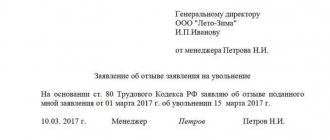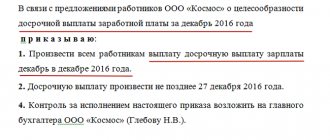How can a fired person defend his rights to wages?
The state provides a citizen with the opportunity to choose where to turn if they have not been paid their salary upon leaving their employer. You can do the following (Article 352 of the Labor Code of the Russian Federation):
- file a complaint with the labor inspectorate;
- write a statement to the prosecutor's office;
- collect debt through court.
Each of these options is characterized by a separate procedure for consideration and obtaining a final decision.
Another of the provided ways to resolve the problem of non-payment of the settlement may be to contact the trade union. However, in practice, this method seems impractical, because such a body does not exist everywhere and even if it is nominally present, as a rule, it acts in the interests of the employer.
Court with the employer
Specify which court to send the claim to by phone - the clerk will tell you the number of the court district related to your address or the address of the defendant.
To claim money earned, you need to draw up a statement of claim (sample), set out the facts, evidence of the employer’s unreliability. To confirm your right to receive a salary, you must present an employment contract, payslips, and other available documents.
Along with the main debt, you have the right to demand compensation: (The amount is calculated using the formula: 1/150 of the Central Bank rate * amount of debt to the employee * number of days of delay) .
After submitting your application, you will receive a message in writing, by phone or e-mail about the appointment of a date for consideration of the case, or a ruling with a requirement to supplement the application with documents. Detailed calculation of compensation for delayed salary
Read more about calculating compensation for delayed wages and legal subtleties in this article.
You need to know what to do if you don’t get paid after you quit. The former employee does not have much time to resolve the issue peacefully. By law, a former employee can recover wages from the company within 90 days of the date of termination. If you have been waiting for a payment for more than a month, you can complain to the labor inspectorate in addition to appeals to other authorities. Immediately file an application with the court and a complaint with the prosecutor's office.
When filing a claim to recover wages, the plaintiff is exempt from paying state duty.
A collective appeal to the court, if the salaries of all employees are delayed, can provoke the company to be declared bankrupt. This situation will turn against those who did not file a claim. A bankrupt company may not pay wages to employees if there are insufficient assets to pay off debts. In such a situation, regulation of the order of debt repayment comes into play:
- payment under writs of execution (for compensation for harm to health, alimony, wages);
- payment according to payment documents.
- In other words, those employees of the bankrupt company who filed a lawsuit in court and received a court decision in favor of the plaintiff will receive first of all.
How to apply to the State Tax Inspectorate for salary after dismissal
If the employer does not pay the dismissal payment and direct negotiations with him did not lead to anything, you can contact the labor inspectorate. To do this, an application is drawn up in any form indicating the following information (Article 7 Federal Law No. 59-FZ dated 02.05.2006):
- the name of the territorial department of the labor inspectorate to which the appeal is sent;
- Full name of the applicant;
- contact information for receiving a response: postal address, email address, telephone number;
- the name of the employer who committed the abuse;
- the content of the violation, with a description of all the circumstances of its commission and the requirements for payment of the debt;
- date of writing and personal signature of the applicant.
The application can be submitted in person, by registered mail with notification, or electronically on the government services website and the portal of the territorial office of the State Tax Inspectorate. To further confirm that he is right, the employee can attach copies of documents (dismissal orders, time sheets, written requests to the employer for debt repayment).
The received application is registered within 3 days and after that is considered within no more than 30 days (Part 1, Article 12 of Law No. 59-FZ). During this time, an unscheduled inspection of the employer is carried out and if violations are detected, a report is drawn up and an order is issued to the employer.
In exceptional cases, it is possible to extend the period for consideration of an application by another 30 days, of which the applicant must be notified in writing.
The order specifies the deadline for its implementation and, if the debt is not repaid before its end, the inspectorate has the right to make a decision on forced collection. Such a decision will have the force of an executive document. If it is not executed within the time period specified therein, then it is handed over to the bailiffs (Article 360.1 of the Labor Code of the Russian Federation). The applicant is sent a written response with a detailed explanation of the results of the verification and recommendations on further steps that he can take to restore his rights.
What threatens an employer who delays payment?
Upon dismissal, the employee receives all due payments, a work book, a 2-NDFL certificate and other documents upon request. If the employee was given the documents, but was not paid the money, he has the right to take measures of influence on the administration of the enterprise. The head of the company and the chief accountant are considered responsible for timely payment.
The interests of a dismissed employee are protected by:
- commission for dispute resolution (not available everywhere, mainly at large enterprises);
- regional division of the state labor inspection;
- prosecutor's office;
- judicial authorities.
In all cases of delay in due payments, you should begin protecting your rights with a written appeal to management. A negligent employer can be punished in several ways.
Material liability
If the management of the organization is in no hurry to pay the money earned, then, under Article 236 of the Labor Code, the court imposes certain obligations on the director:

- payment of compensation for late payment upon dismissal. During the delay period, inflation may depreciate the size of the monetary settlement. The employee has the right to demand indexation of the salary amount;
- compensation for late payment. The penalty is calculated as a percentage of the amount of detained funds.
To receive the money due, the dismissed employee must apply to the judicial authorities. The organization must pay compensation even if the payment is delayed due to circumstances beyond the control of management.
Fine or warning
An employer who delays payment upon dismissal, in addition to assigning compensation, is held administratively liable. Such measures are used to reduce irresponsibility, fraud and negligence in labor relations.
A director found to have failed to fulfill obligations to an employee is punished with a warning. If a repeated offense occurs, the manager may be removed from his position.
Fines are imposed in different amounts, the amount is influenced by the following parameters:
- degree of guilt;
- the amount of damage caused to the employee;
- the total number of detected offenses in the organization;
- status of the guilty official.
For example, the fine for non-payment of compensation for unused vacation upon dismissal will be 30-50 thousand rubles for the organization. An individual entrepreneur will pay 1000-5000 rubles. A specific official will be fined in the same amount and given a warning.
A minimum amount of 1000 rubles is assigned to individual entrepreneurs brought to justice for the first time. Limited liability companies that repeatedly violate payment deadlines with employees may pay up to 100 thousand rubles. Payment of fines is credited to the municipal fund or state treasury.
Criminal liability for non-payment of money
If the organization’s actions violate the provisions of Article 145.1 of the Criminal Code of the Russian Federation, a criminal case is opened. During the trial, the guilt of the act and the motives of the defendant are established. Instead of the director, the head of a department or an accountant may be found guilty. Late payment with delays in payments longer than 60 days is subject to criminal prosecution.

As a result of judicial review, one of the following types of punishment is assigned:
- fine;
- removal from office for a certain period;
- forced labor;
- restriction of freedom.
In some cases, the types of punishment complement each other.
Fines in criminal prosecution are much higher than in administrative proceedings. If more than 50% of the salary is not paid for longer than three months, the culprit will be required to pay up to 120 thousand rubles. If the payment has not been made at all for more than 2 months, the amount increases to 100-500 thousand.
Dear readers! To solve your problem right now, get a free consultation
— contact the on-duty lawyer in the online chat on the right or call:
+7
— Moscow and region.
+7
— St. Petersburg and region.
8
- Other regions of the Russian Federation
You will not need to waste your time and nerves
- an experienced lawyer will take care of solving all your problems!
How to resolve a salary issue through the prosecutor's office
If payment is delayed after the dismissal of a worker, he can file a written complaint with the prosecutor's office. It is also drawn up in any form and must necessarily include the following details (clause 2.8 Order of the Prosecutor General’s Office of Russia dated January 30, 2013 No. 45):
- the name of the prosecutor's office and the official to whom the application is sent;
- Full name and contact details of the applicant;
- the essence of the dispute, a list of violated rights, as well as requirements to eliminate abuses on the part of the employer.
- date of writing and personal signature of the applicant.
Documents substantiating the requirements contained in it must be attached to the application. For example: a copy of the employment contract, extracts from time sheets, copies of work orders, an order to terminate the employment contract. Applications are allowed to be submitted:
- by post (registered letter with acknowledgment of delivery);
- through the official website of the prosecutor's office;
- through a personal visit to the prosecutor's office.
The received appeal is also subject to registration within 3 days. If its consideration requires an inspection of the employer, then it is considered within 30 days. In cases where additional actions are not required to confirm the facts stated in the application, it can be considered within 15 days.
If, as a result of requesting explanations from the employer and checking the requested documentation, the fact of non-payment of wages is confirmed, he is issued an order to eliminate the violation. The applicant must receive a written response to the submitted application. The prosecutor's office also has the right to independently file a lawsuit on behalf of the applicant to protect his rights.
Deadlines for payment of wages upon dismissal

According to Article 140 of the Labor Code, there is a calculation period during which the employer is obliged to accrue and pay the amounts of money earned by the citizen over the last month, as well as to compensate for part of the vacation not used by the specialist at the time of dismissal. The article states that the payment of wages must occur on the last day of a person’s work, with the condition that at this moment the contract between the parties has already been terminated.
ATTENTION! If the employee was not at his place of work on that day (sick with sick leave or on vacation at his own expense), the salary is issued no later than the next day from the moment he submitted a request for payment.
If a dispute arises between the participants in legal relations regarding the amount of payment, the enterprise makes accruals within the time frame specified in Article 140 of the Labor Code from the date of the employee’s application in an amount that satisfies both parties. This means that they must first reach a compromise on this issue, after which the citizen submits an application.
Responsibility of the employer for non-payment of payment upon dismissal
- employer in accordance with Art. 140 of the Labor Code of the Russian Federation pays the employee the unpaid part of the salary, compensation for unused vacation days, etc. To the manager dismissed by decision of the owner of the organization’s property, when the termination of the employment contract is not related to the actions of the head of the organization, under Art. 279 of the Labor Code of the Russian Federation, special compensation is paid;
- the employee compensates for real damage caused to the employer, but the amount of such compensation is limited to the average monthly earnings of the dismissed person (Article 241 of the Labor Code of the Russian Federation). If the employee is a financially responsible person, then for him the limitation on the amount of compensation is removed, and he compensates for all direct actual damage. The list of positions for which it is possible to conclude an agreement on full financial liability was approved by Resolution of the Ministry of Labor of the Russian Federation dated December 31, 2021 No. 85.
We recommend reading: Codes of compulsory medical insurance companies in Russia
Monetary compensation is recovered in favor of the employee along with unpaid wages and other payments. As the Arbitration Court of the Volga-Vyatka District indicated in its ruling dated October 16, 2021 in case No. A82-2306/2021, compensation is paid to an individual employee for the performance of his labor duties and is a way of protecting his labor rights.
Responsibility for late payment of compensation upon dismissal
Therefore, every working person in this matter needs legal knowledge. What you need to know about the deadlines for issuing wages, about the procedure for paying an employee upon dismissal, was told to our readers and given examples from judicial practice by the chairman of the Mogilev district court Olga Lvovna KLEKOVKINA.
The topic of liability for non-payment of wages is especially relevant in conditions of an economic crisis or economic uncertainty. The reasons are banal: lack of scope of work, non-payments of contractors, lack of government funding for individual programs.
NTVP "Kedr - Consultant"
LLC "NTVP "Kedr - Consultant" » Services » Legal consultations » Labor disputes » Is compensation paid during layoffs for the delay in payment of severance pay for the second and third months of non-employment?
Question:
Service leaflet. In the event of a layoff, is compensation paid for the delay in payment of severance pay for the second and third months of unemployment?
Lawyer's answer
The employer is obliged to pay the employee monetary compensation (interest) for the delay in payment of the maintained average earnings for the second and third months from the date of dismissal, since the benefit is a compensation payment due to the employee in connection with the termination of the employment contract. Interest (monetary compensation) must be accrued and paid starting from the day following the nearest established day of payment of wages in the organization, respectively, after the expiration of the second and third months from the date of dismissal, up to and including the day of actual payment.
Justification: In accordance with Art. 178 of the Labor Code of the Russian Federation, upon termination of an employment contract due to a reduction in the organization’s workforce (clause 2, part 1, article 81 of the Labor Code of the Russian Federation), the dismissed employee is paid severance pay in the amount of average monthly earnings, and he is also retained the average monthly earnings for the period of employment , but not more than two months from the date of dismissal (including severance pay). In exceptional cases, the average monthly salary is retained by the dismissed employee for the third month from the date of dismissal by decision of the employment service body, provided that within two weeks after the dismissal the employee applied to this body and was not employed by it (Part 2 of Article 178 of the Labor Code RF).
According to clause 12 of the Regulations on the procedure for the release, employment of workers and employees and the provision of benefits and compensation to them, approved by the Decree of the State Committee of Labor of the USSR and the Secretariat of the All-Union Central Council of Trade Unions dated March 2, 1988 N 113/6-64, valid to the extent that does not contradict labor legislation (Article 423 Labor Code of the Russian Federation), payment of the maintained average earnings for the period of employment is made after the employee’s dismissal from his previous place of work on the days when wages are issued at the enterprise upon presentation of a passport and work book, and for the third month from the date of dismissal - and a certificate from the employment agency.
Therefore, having received from an employee an application for payment of the maintained average earnings for the second month from the date of dismissal, and also, if there is a corresponding decision of the employment service body, for the third month from the date of dismissal, the employer is obliged to pay such earnings no later than the next established day of payment of wages payments, respectively, after the second and third months from the date of dismissal.
Article 236 of the Labor Code of the Russian Federation establishes the financial liability of the employer for the delay in payment of wages and other payments due to the employee, namely, if the employer violates the established deadline for payment of wages, vacation pay, dismissal payments and (or) other payments due to the employee, the employer is obliged pay them with interest (monetary compensation) in the amount of not less than one hundred and fiftieth of the Bank of Russia key rate in effect at that time on the amounts not paid on time for each day of delay, starting from the next day after the due date for payment up to and including the day of actual settlement. In case of incomplete payment of wages and (or) other payments due to the employee on time, the amount of interest (monetary compensation) is calculated from the amounts actually not paid on time.
The amount of monetary compensation paid to an employee may be increased by a collective agreement, local regulation or employment contract. The obligation to pay the specified monetary compensation arises regardless of the employer’s fault.
Thus, severance pay is a compensation payment due to an employee in connection with the termination of an employment contract. If the timeliness of payments of the maintained average earnings is violated, the employer becomes obligated to make them with the payment of interest (monetary compensation) established by Art. 236 of the Labor Code of the Russian Federation, both for the second month of unemployment, and for the third month in case of violation of payment terms.
Applying the provisions of Art. Art. 136, 423 of the Labor Code of the Russian Federation, as well as Art. 236 of the Labor Code of the Russian Federation, we can conclude that interest (monetary compensation) must be accrued and paid starting from the day following the nearest established day of payment of wages in the organization, respectively, after the expiration of the second and third months from the date of dismissal, up to and including the day of actual payment .
So, for example, if an employee contacts the employer with a demand for payment of the maintained average earnings for the second month at the end of the month, say March 24, 2021, and the organization has established wage payment days on the 14th and 28th, then the employer is obliged was to pay average earnings on the next established day of payment of wages - March 28, 2017. Since the employer paid severance pay only two months after the application, interest (monetary compensation) for the delay in payment for the second month should be accrued from the day following the next established the day of payment of wages in the organization, that is, from March 29, 2021 to the day of actual payment, inclusive.
Consequently, the employer is obliged to pay the employee compensation for the delay in payment of severance pay for the second month of unemployment. When an employee applies to the employer for payment of average monthly earnings for the third month of unemployment, in case of delay in payments, compensation is also accrued. Interest (monetary compensation) must be accrued and paid starting from the day following the nearest established day of payment of wages in the organization, respectively, after the expiration of the second and third months from the date of dismissal, up to and including the day of actual payment.
{Question: ...In case of layoffs, is compensation paid for the delay in payment of severance pay for the second and third months of non-employment? If so, from what date does late interest accrue? (Expert consultation, State Labor Inspectorate in the Nizhny Novgorod region, 2017) {ConsultantPlus}}
The explanation was given by Igor Borisovich Makshakov, legal consultant of LLC NTVP Kedr-Consultant, August 2019.
When preparing the answer, SPS ConsultantPlus was used.






